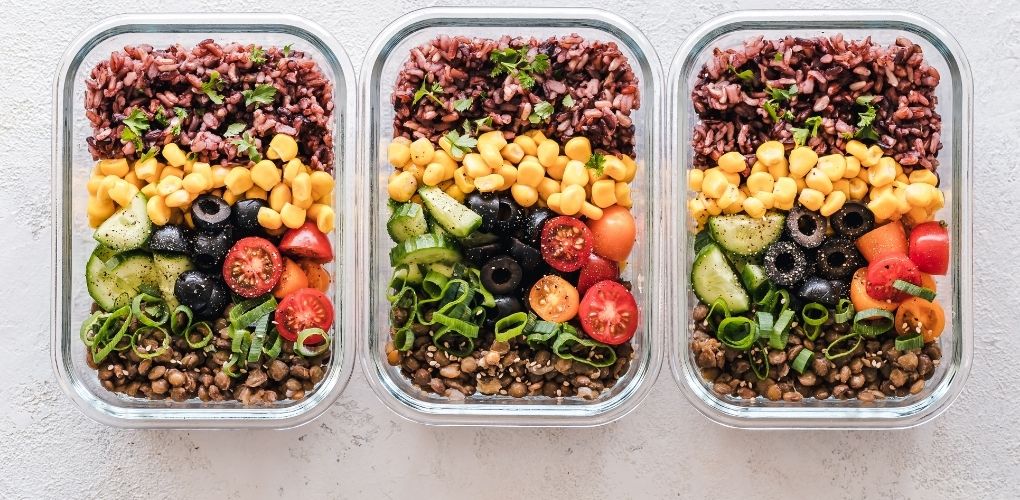
The definitions of prevention vary depending on which type of disease is being treated. This refers to maintaining a healthy weight and preventing excessive weight gain for adults. It is possible to prevent overweight and obesity in children by decreasing intake of high fat foods and increasing physical exercise. It can also be achieved by altering social and economic policies and environmental factors. Listed below are some methods for obesity prevention. These methods can either be combined or used individually. These strategies can make a big difference in the lives of many people.
Multi-sectoral approaches to obesity prevention can be used to change social norms about eating habits and promote a healthy lifestyle. Although there are no one villain in obesity prevention. Food plays a significant role in the epidemic. For example, people who are obese tend to eat more before they feel full, which leads them to continue eating even when they are full. They might also eat less when stressed or anxious. A modern lifestyle is more physically demanding than ever and requires less energy. Additionally, many people don't do any physical activity, which burns calories. This is why it is crucial to act to end this global epidemic.

Community-based prevention programs are increasingly becoming popular, as a variety of programs have been proven to lower the risk of obesity. These interventions usually target the environment. Computer and TV use are high in calories and passive. They also target individual behaviors like the availability of equipment for children's play areas. These programs don't just help you lose weight. They can also encourage active play and good sleep.
An effective obesity prevention program must target multiple levels of the population. Obesity prevention programs aim to change unhealthy eating habits and prevent overweight. It is important to eat more fruits, vegetables (whole grains, legumes, nuts, and seeds). Doing this will reduce the risk of obesity. This includes high cholesterol and heart diseases. They should also include physical activity in their lives. This will increase their chances of losing weight. Preventive measures are important and should always be taken.
Different prevention strategies achieve different goals. Universal obesity prevention plans focus on changing social norms, and environmental conditions that promote obesity. Programs are tailored to specific groups in order to prevent obesity. For example, interventions aimed at children and teenagers are more likely to have positive effects on their health than those in adults. The prevention strategy used for children should include the prevention of childhood and adolescent weight gain.

In addition to behavioral changes, a healthy diet is essential for obesity prevention. A healthy diet and adequate sleep are the best ways to prevent obesity. These approaches will not only help you achieve your goal of a healthy weight but will also minimize the risk of developing many chronic diseases. It is crucial to avoid obesity in order to lower your risk for heart disease, high bloodpressure, and diabetes. However, you must also make sure your body is in good condition.
FAQ
What are the 7 best tips to lead a healthy, happy life?
-
You should eat right
-
Exercise regularly
-
Rest well
-
Drink plenty of water.
-
Get enough rest
-
Be happy
-
Smile often
What's the best diet?
Your age, gender, body type, and lifestyle choices will all impact the best diet. You should also consider how much energy your exercise consumes, whether you like low-calorie or high-calorie foods, and what you enjoy in terms of eating fruits and veggies.
Intermittent fasting may be a good choice if you want to lose weight. Intermittent fasting is a way to eat only certain meals during the day instead of three large meals. This approach may prove to be more beneficial than traditional diets that have daily calorie counts.
Research suggests that intermittent fasting may increase insulin sensitivity and lower inflammation. This can result in a reduction in blood sugar levels and a reduced risk of developing diabetes. Intermittent fasting has been shown to promote fat loss as well as improve overall body composition.
What is the difference in a virus and bacteria?
A virus can be described as a microscopic organism that cannot reproduce in another cell. A bacterium can be described as a single-celled organism which reproduces by splitting in two. Viruses are very small (about 20 nanometers) while bacteria are larger (up to 1 micron).
Viruses are often spread through contact of infected bodily fluids like saliva, urine or semen. Bacteria are usually spread through direct contact with contaminated objects or surfaces.
Viruses may enter the body through cuts, scrapes. bites, or any other break in the skin. They can also enter the body through the mouth, nose, eyes and ears, vaginal, rectum or anus.
Bacteria can enter our bodies through wounds, cuts, scrapes, burns, insect stings, or other breaks in our skin. They may also be introduced into our bodies through food and water as well as soil, dirt, dust, and animals.
Both bacteria and viruses cause illness. But viruses do not have the ability to multiply within their hosts. So they only cause illnesses when they infect living cells.
Bacteria can grow in their hosts and cause disease. They can also invade other parts of your body. To kill them, we must use antibiotics.
How do I get enough vitamins?
You can obtain most of your daily requirement through diet alone. Supplements can be helpful if you are lacking in any one vitamin. Multivitamin supplements can be taken that contain all the vitamins you need. Or you can buy individual vitamins from your local drugstore.
Talk to your doctor if you have concerns about your nutritional intake. Dark green leafy vegetables like spinach, broccoli and kale, as well as turnip greens and mustard greens such as turnip and mustard greens and bok choy, are rich in vitamins K & E.
Ask your doctor if you're not sure how many vitamins you should take. Based on your medical history, and your current health status, your doctor will recommend the right dosage.
What is the difference in fat and sugar?
Fat is an energy source from food. Sugar is a sweet, naturally occurring substance in fruits and vegetables. Both fats (and sugars) have the same calories. But, fats have more calories than sugars.
Fats are stored within the body and can contribute to obesity. They can cause cholesterol buildup, which can lead you to heart attacks and strokes.
Sugars are quickly absorbed by the body and provide instant energy. This causes blood glucose levels in the body to rise. High blood glucose levels can be dangerous because it increases the risk of developing type II diabetes.
How much should I weigh for my height and age? BMI chart & calculator
Calculating your body mass index (BMI), is the best method to calculate how much weight to lose. A healthy BMI range should be between 18.5 and 24,000. You should lose about 10 pounds each month if you are trying to lose weight. To calculate your BMI, simply enter your height and weight into the BMI calculator.
To see if you're overweight or obese, check out this BMI chart.
What is the difference between a calorie or a kilocalorie.
Calories can be used to measure how much energy is in food. Calories is the unit of measurement. One calorie is equal to one degree Celsius in energy.
Kilocalories can also be used to refer to calories. Kilocalories measure in thousandths a calorie. For example, 1000 calories equals one kilocalorie.
Statistics
- According to the Physical Activity Guidelines for Americans, we should strive for at least 150 minutes of moderate intensity activity each week (54Trusted Source Smoking, harmful use of drugs, and alcohol abuse can all seriously negatively affect your health. (healthline.com)
- WHO recommends consuming less than 5% of total energy intake for additional health benefits. (who.int)
- WHO recommends reducing saturated fats to less than 10% of total energy intake; reducing trans-fats to less than 1% of total energy intake; and replacing both saturated fats and trans-fats to unsaturated fats. (who.int)
- nutrients.[17]X Research sourceWhole grains to try include: 100% whole wheat pasta and bread, brown rice, whole grain oats, farro, millet, quinoa, and barley. (wikihow.com)
External Links
How To
27 Steps to achieve a healthy lifestyle when your family only buys junk food
The best way to eat healthily is to cook at your home. However, this is often difficult because people do not know how to prepare healthy meals. This article will offer some suggestions on making healthier dining choices at restaurants.
-
Find restaurants that offer healthy options.
-
Order salads before you order meat dishes.
-
Ask for sauces made without sugar.
-
Avoid fried foods.
-
Request grilled meats instead of fried ones.
-
Order dessert only if you absolutely need it.
-
It is important to have something more after dinner.
-
Eat slowly and chew thoroughly.
-
Get plenty of water when you eat.
-
Breakfast and lunch should not be skipped.
-
Have fruit and veggies with every meal.
-
Drink milk rather than soda.
-
Try to stay away from sugary drinks.
-
Reduce salt intake.
-
Try to limit the number of times you go to fast food restaurants.
-
If temptation is too strong for you, invite someone to be your friend.
-
Make sure your kids don't spend too much time on TV.
-
Do not turn on the television while you eat.
-
Do not drink energy drinks.
-
Take regular breaks from the office.
-
Get up at a reasonable hour and do some exercise.
-
Do some exercise every day.
-
Start small and progress slowly.
-
Realistic goals are important.
-
Be patient.
-
Even if you don’t feel like exercising, make time for it.
-
Positive thinking is important.